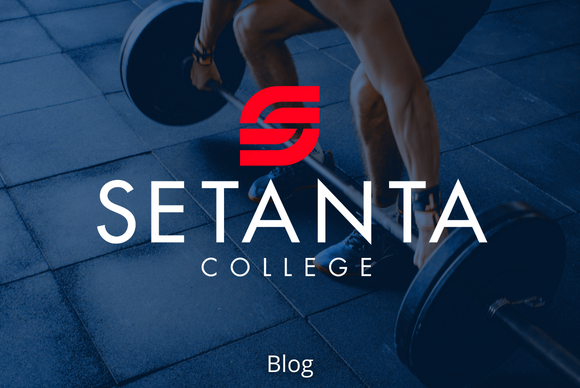FAQs: Studying the Undergraduate Strength & Conditioning Pathway at Setanta College
How is the Undergraduate Pathway delivered?
The Setanta strength & conditioning certificates and degree is delivered through blended learning. This means that the lectures (written and video) are pre-recorded and presented online to the student on a weekly basis. Furthermore, we also host on-site workshops where students gather with their fellow classmates and tutors to learn the practical skills of Strength and Conditioning. We have workshop venues across Ireland, the UK, the USA, India, Italy, and South Africa.
How many hours a week of study time is needed?
The recommended time commitment for our courses is on average about 4 – 5 hours per week. This incorporates viewing the lectures and doing additional reading and study. Lectures are delivered through video format, with some additional articles posted in the weekly schedule.
Are the practical workshops mandatory?
While no grades are awarded for attendance at workshops, you are highly recommended to attend all your workshops. It is understood that on occasion, a learner may miss a workshop. If a learner misses a workshop, we recommend that he/she attend the workshop at the next possible opportunity for the particular workshop to be delivered again.
How are students assessed?
There are no sit-down written examinations. The grade for each module is determined by continuous assessment. This is a mixture of written assignments and practical assessments.
Are the Setanta qualifications internationally recognised?
Yes, our Undergraduate Pathway is awarded by QQI (Quality and Qualifications Ireland), which is an internationally recognised accrediting body.
What are some career opportunities that students can avail of after graduating?
In general career development terms, many of our graduates have progressed to working in the health & fitness or sports industry. We have graduates who are now working with elite-level sports teams, while some graduates have also gone on to set up their own facilities.
Students will be prepared to work with sports and recreational participants across a wide range of levels from beginners through to elite athletes. Additionally, students will be provided with the skills to perform effectively in a wide range of fitness-related industries, such as rehabilitation, personal training, gym instructing, health and wellness, community activity, tutoring, etc.
What content is covered in the Undergraduate Pathway?
There is a range of content covered throughout the modules. Students begin with the Functional Screening module, examining how the body moves and assessing any limitations in the body. We then progress to S&C modules.
We have several different options for students depending on the level of qualification you want to reach. Our S&C pathway has a total of 18 modules, with different qualification stages within this.
Other modules include:
- Sports Nutrition
- Speed and Endurance Development
- Resistance Training
- Coaching Technology & Fitness Testing
Are students required to have any previous sporting/coaching qualifications or experience to apply for the Undergraduate Pathway?
As our courses are designed to prepare you from step one to all the way through the course, you don’t need any previous sporting or coaching qualifications or experience. We have students, both past and present, who have come from a variety of different sporting backgrounds. We also have students who don’t have a background in sports but have a great interest in the physical preparation of athletes.


Leave A Comment